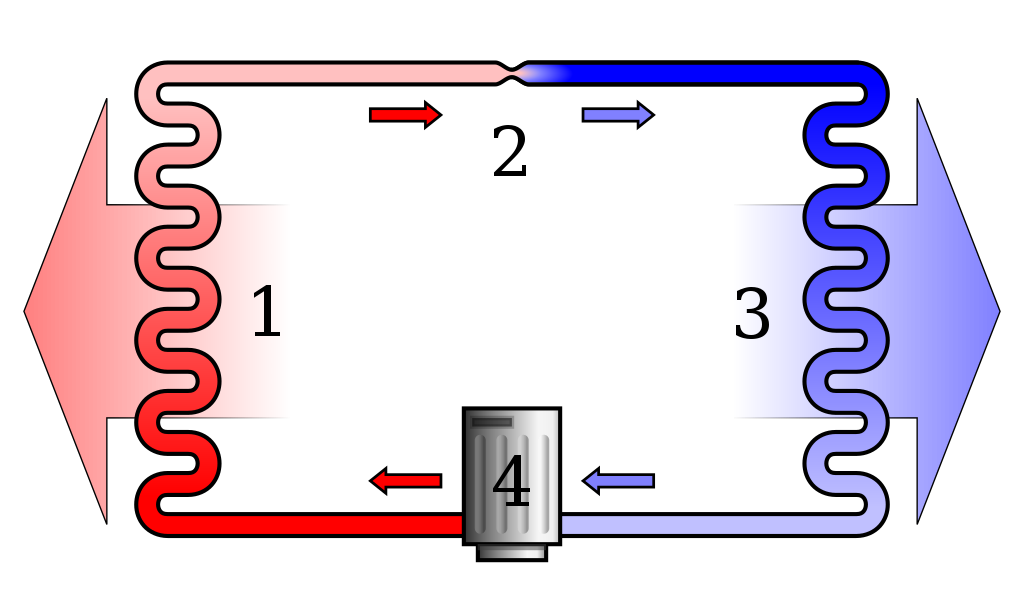Heat pumps save energy for heating and cooling

Heat pumps use physical laws of thermodynamics to move large amounts of thermal energy for heating and cooling with little energy expenditure.

by Emiliano Bellini, 08/04/2020 in PV Magazine
Residential heat pump produces water up to 75 C: Scientists in Spain have developed a new heat pump that can produce 6.49 kWh of heat for each kilowatt-hour of power it consumes. The device could generate hot water at a temperature of up to 75 C.
Researchers from the Polytechnic University of Valencia in Spain and heating specialist Saunier Duval, a unit of Germany-based Vaillant Group, have developed a new residential heat pump based on natural refrigerants.
The device uses propane as a refrigerant, which allows for high energy efficiency, while keeping carbon dioxide emissions to almost zero.
“Our heat pump can heat homes completely environmentally friendly, without emitting carbon dioxide into the atmosphere. In addition, its high-efficiency energy allows it to be classified as renewable energy, by pumping energy from the environment”, said researcher José Gonzalvez.
Read the complete article….
Featured image: Diagram of a phase change heat pump. Legend: 1. Condenser coil (hot side heat exchanger, gas cools and liquifies); 2 Metering Device (liquid expands and cools), 3. Evaporator coil (cold side heat exchanger, liquid vaporizes and heats up), 4. Compressor (gas is compressed and heats up). Red = Gas at high pressure and very high temperature, Pink = Liquid at high pressure and high temperature, Blue = Liquid at low pressure and very low temperature, Light Blue = Gas at low pressure and low temperature. Note: the arrows in the diagram are meant to indicate the flow of air and coolant; they do not correspond to heat flow, which in the system depicted is (generally) from right to left. / Author: Ilmari Karonen, own work / Licensing: Public Domain.